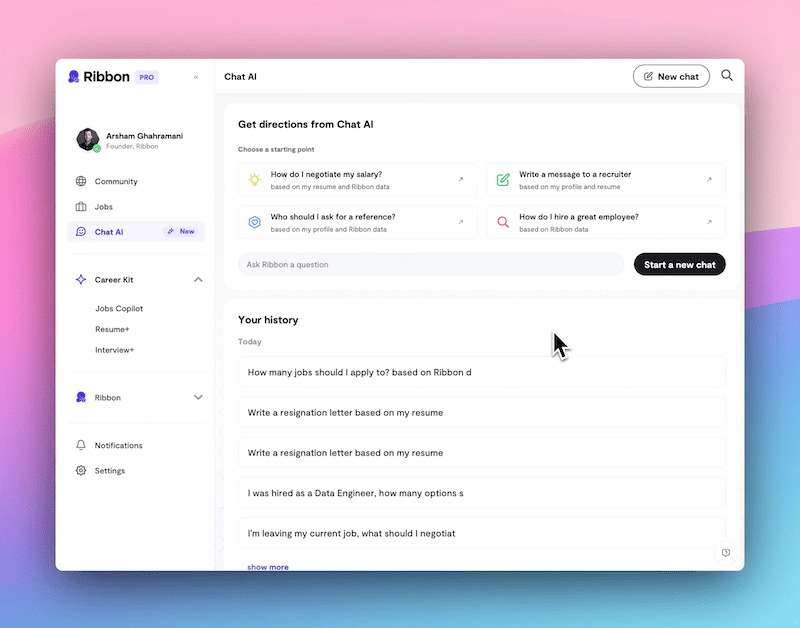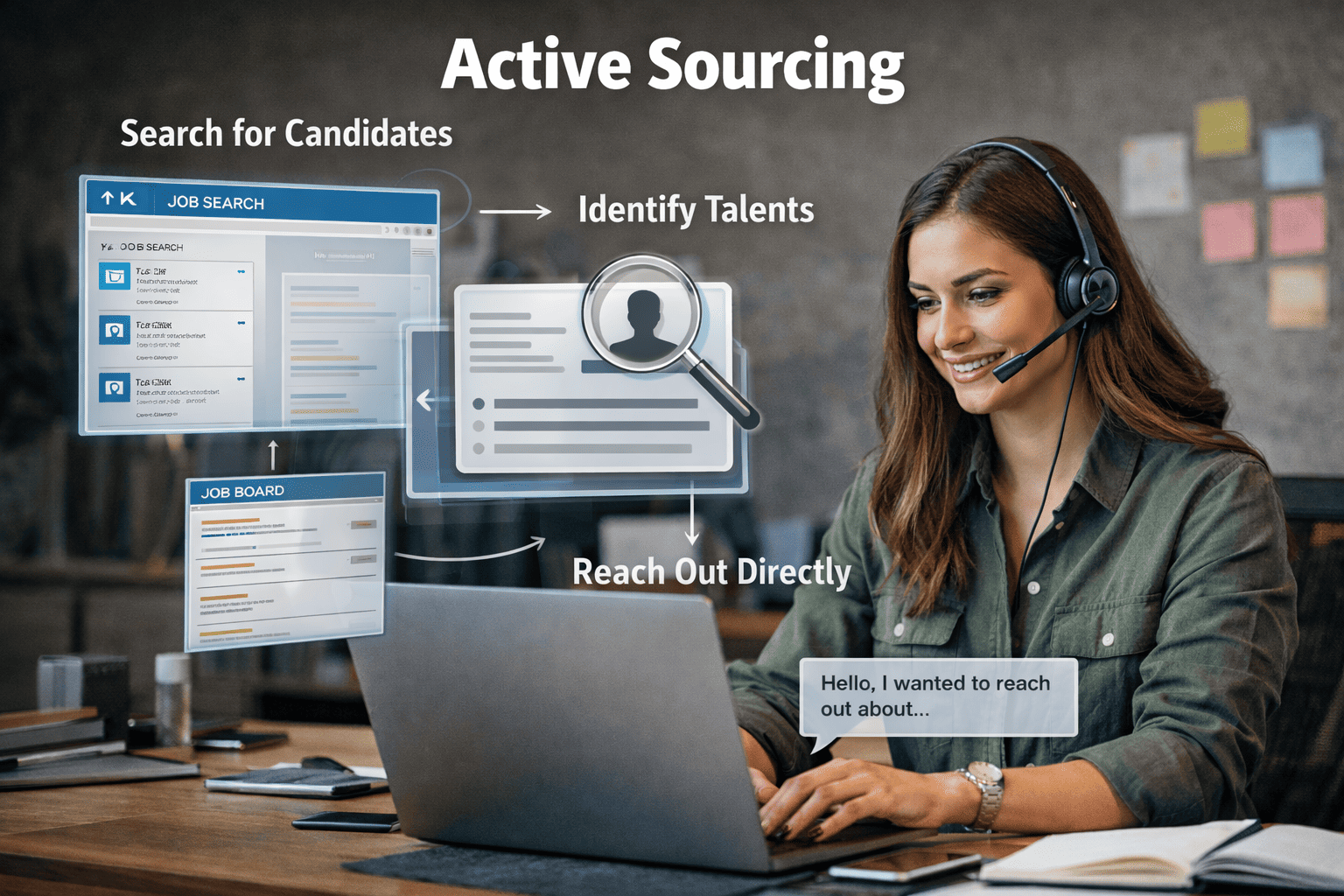Recruitment Firms Under Pressure: How to Beat Operational Overload in 2025?

We are constantly told that the recruitment market is under strain. And in recent years, the signs have multiplied: a decrease in the volume of positions, an increase in recruitment times, fewer accepted offers, and low visibility.
The Q1 2025 results from PageGroup (-11.7% gross profit), Hays (-9% net fees), and Robert Walters (-16% net fees) confirm this: Yes, activity is slowing down, while the pressure continues to relentlessly beat down on recruitment agencies.
For consultants, it's a double whammy. More complex assignments and still the demand to deliver quickly and well.
So, are these circumstantial effects or structural pressure? What if the situation is more nuanced?
All the answers alongside Amaury de Moulins, Associate Director of Outsourcing and REC Partners at FAB Group. He sheds valuable light on the ins and outs of in-house recruitment and how to recruit without burning out (too much).
The Middle Ground Between Circumstantial and Structural Pressure
"We are one of the few professions where we have 2 clients. We sell a company to a candidate, and a candidate to a company. Except we're not selling an object, we're selling people." This phrase from Amaury speaks volumes about the inherent tension of the role.
It's a reality. Recruitment in agencies is by nature a high-pressure profession. Consultants are caught between the sometimes vague expectations of companies and the unpredictable reactions of candidates. Even the best match doesn't guarantee a signed contract.
For junior consultants, without a solid client portfolio, the difficulty is even more palpable. Without methods or benchmarks, they succumb to the pressure more quickly.
"An experienced senior knows how to adapt, but a junior can quickly lose their footing." Amaury.
We can legitimately question the responsibility of agencies to recruit well internally, train, support, and structure the first few years. And that's not all. Because to this "basic" pressure is added the race for speed and quality: deliver quickly, well, and sometimes the impossible. The perfect combination to create maximum tension.
According to Amaury, this structural pressure has always existed. But it is amplified by the current economic climate. Economic slowdown, hiring freezes, reluctance to commit to permanent contracts. In 2024, some sectors (especially start-ups) saw assignments become scarce, while others like large retail continued to recruit.
The result: an increased overload, between business urgency and market uncertainty.
Overload in Agencies: Understanding the Causes and Consequences
How does this overload change the daily life of agencies? How does it influence the lives of recruiters?
Rushed = Less Precise? The Visible Effects of Overload
One of the first consequences highlighted by Amaury is the decline in quality. Indeed, an overloaded consultant will try to go faster, at the expense of the quality of work. The result? Less time to understand the client's needs, to support candidates, to adjust profiles.
This haste creates a domino effect: poorly prepared candidates, superficial briefs, more back-and-forth, and a weakened client relationship.
And the more the consultant wants to go fast, the more they rush, waste time, get exhausted, lose confidence, and it never ends.
It's a real vicious circle.
Consultant Under Tension: When the Job Weighs (Too Much)
The job of a recruitment consultant is demanding. And it's not for everyone. "I think we feel the pressure more when we're not in the right place." Amaury.
Yes, it's true, there is a form of tension already ingrained in the profession itself, like a natural pressure. With irregular hours, monthly targets, human surprises. The mental load is invisible, but it's everywhere.
Being a consultant is being a salesperson. A reality often misunderstood by those who discover it. Internal recruitment then has a direct impact; you have to identify the right levers of motivation (performance, compensation, client relationship) to avoid casting errors.
Then, you have to add the context and environment: Management plays a key role here. A poorly supported, poorly managed consultant, without structure or direction, is a guaranteed overload for them, for their manager, for the agency.
No organization, no method. No method, more pressure.
With the consequence of a high turnover, well known to agencies unfortunately, especially among juniors. They quickly abandon ship, for lack of structure, or simply because it's not the right job.
5 Concrete Ways to Ease the Burden on Agencies
1. A clear organization, driven by management
Amaury insists: "Organization and discipline are what allow juniors not to get lost. Without it, consultants improvise and burn out."
2. Better prioritize assignments (when possible)
Yes, some assignments are flawed, exhausting, costly. Saying no is rare in agencies, but we can guide, reassign, challenge. Protecting consultants also means knowing how to refuse or redirect intelligently.
3. Train and structure, for consultants and managers
It's time to train in the consulting role, time management, client framing. The key: reduction of unnecessary steps, co-construction of effective recruitment, and above all, we avoid chasing a unicorn.
4. Value differently: manager is not an automatic promotion
Performance does not justify a promotion. Good management is learned. Management is a skill, not a status. And without training, the risk is to drive away an entire team.
Why not consider alternatives to value performance, without imposing management: horizontal evolution, bonuses, professional recognition.
5. Tools? Yes, but sparingly
Databases, CV libraries, LinkedIn licenses, etc. All these basics that directly impact performance will indeed make a difference.
On the other hand, facilitation tools such as Noota or ChatGPT can be interesting, but they are not enough to compensate for the entire organizational aspect of the agency, pressure management, the love of the job. Comfort bonus, yes. Miracle solution, no. They are allies only if the foundations are solid.
Amaury shares a small point of vigilance: more tools = more expectations. A highly equipped agency could, perversely, demand more results without taking the context into account.
Under Pressure, But Not Without Solutions
Structural or circumstantial overload? A bit of both, Captain!
Recruitment in agencies is an inherently high-pressure profession. But the economic climate can worsen the equation.
To hold on, it's not just about having a good ATS or a great AI tool: you need organization, good internal recruitment, a clear managerial culture, and intrinsic motivation.
"You have to love this job. Enduring it is already too late." Amaury.
Working better together, between clients, managers, and consultants, is undoubtedly the most sustainable lever to cope with overload, without sinking. And continue to recruit, while keeping your head above water.
Want to go further? Find all our resources dedicated to AI for recruiters.
Leverage your Interview Data
AI interview notes, scorecard, follow-up, ATS integration, and more...
Related articles

Forget note-taking and
try Noota now
FAQ
In the first case, you can directly activate recording as soon as you join a videoconference.
In the second case, you can add a bot to your videoconference, which will record everything.
Noota also enables you to translate your files into over 30 languages.

.svg)
.svg)

.webp)

.png)


.svg)
